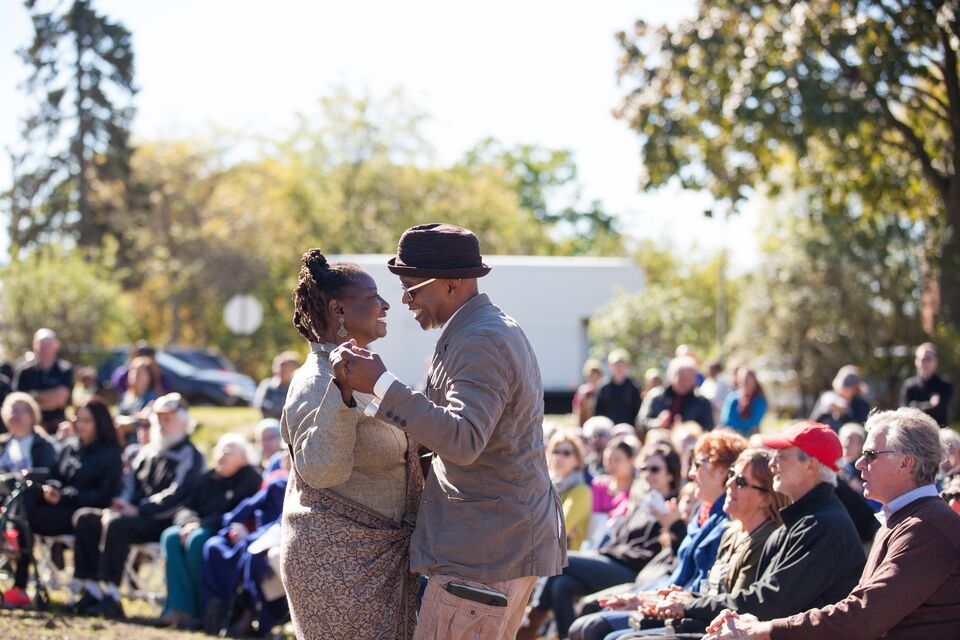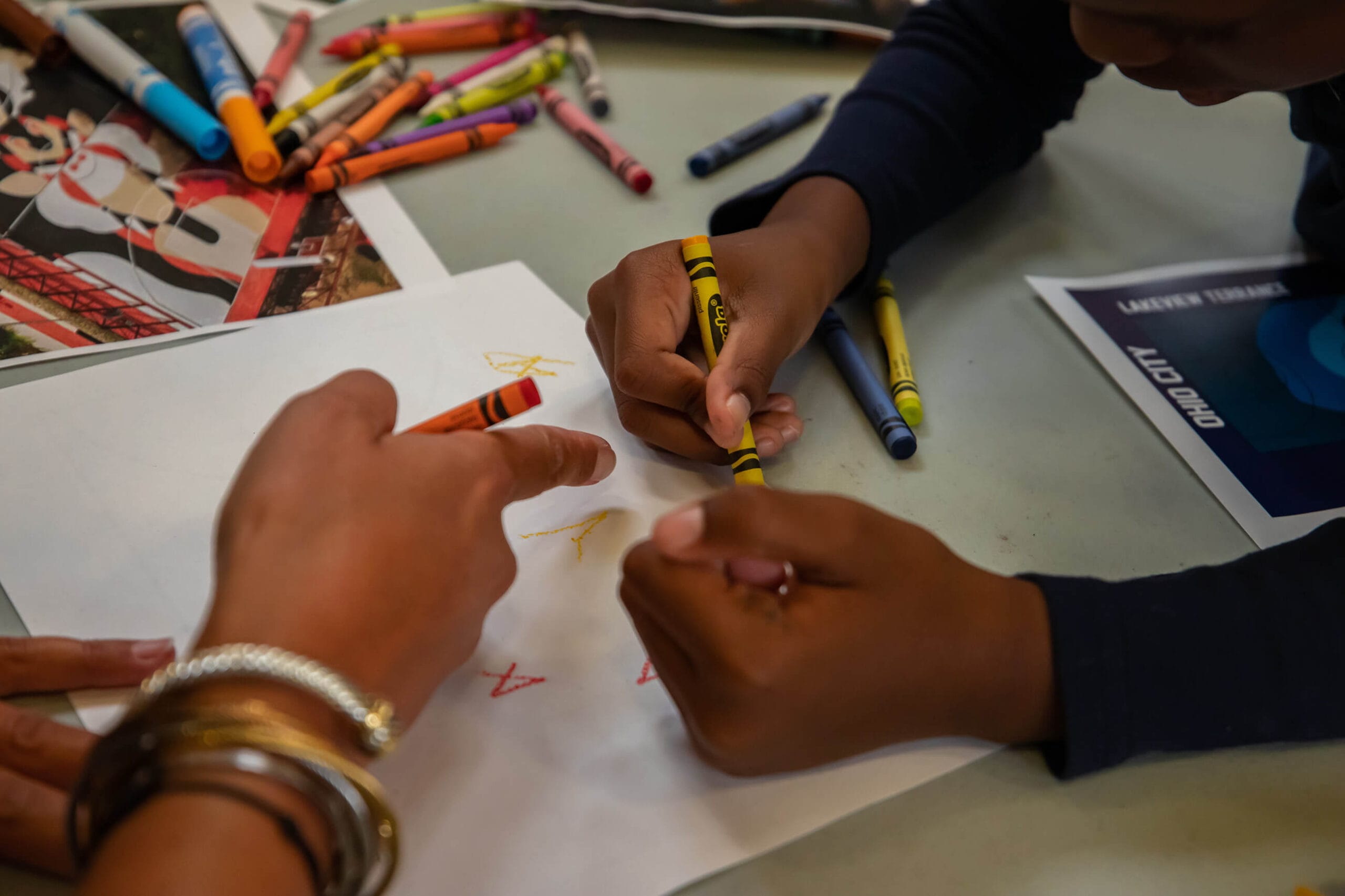Minneapolis and St. Paul lead the nation in parks. But tens of thousands of Twin Cities residents still don’t have a park within a 10-minute walk of home. In the city’s Midway neighborhood, kids growing up in St. Paul’s Skyline Tower resorted to playing soccer in the narrow hallways between apartments. Almost ten years ago, Midway residents hatched an ambitious plan to transform a sea of vacant lots across the street from the tower into a brand new city park.
Our Twin Cities team has been working alongside Midway residents and students to bring that plan to life, and we’re looking forward to celebrating the grand opening of Midway Peace Park later this year. Meanwhile, the network of neighbors who organized to create this park is sticking together and helping each other navigate broader challenges.
We sat down with community organizer Aamina Mohamed, our Americorps Public Ally in the Twin Cities, to learn about how rallying people for parks can strengthen communities, even before the park opens to the public.

Aamina Mohamed is an Americorps community organizer in our Twin Cities office. Photo: Joshua Kissi
Big picture, what does a community organizer do?
Organizing is all about getting people headed in a direction toward some sort of change—whether it’s building momentum behind a political campaign to change who represents you, or catalyzing your own community to advocate directly for what you need. That can mean organizing meetings, showing up at community events, or going door-to-door. As a digital organizer, I’ve even helped create a hashtag that went viral. At The Trust for Public Land, we’re organizing for equity, climate justice, and health, through parks and public lands.
What are you working on?
These days I’m helping organize a stewardship group for Midway Peace Park, a new park in St. Paul that will open this summer. It’s next door to Skyline Tower, one of the largest affordable housing buildings in Minnesota. Almost ten years ago, Skyline residents started talking about parks in their neighborhood, because basically, there weren’t any. Meanwhile, these three big vacant parcels of land—about five acres in all—sat just across the street, fenced off and unused. Residents started asking, “Could we turn that space into a park?”

Skyline Tower was once surrounded by fenced-off vacant lots. We helped the City of St. Paul acquire five acres of open space, and have worked with the community to transform the land into a new city park. Photo: Trust for Public Land
What has The Trust for Public Land’s role been?
The community identified the need, and The Trust for Public Land got involved to bring our resources and expertise to help meet the need. We raised money to buy vacant land and transfer it to the city, and have led a five-year participatory design process, to make sure the park reflects the priorities of the people who first dreamed it up. Now, after a decade of organizing, neighbors are so excited: there will be a walking path, a stream, an amphitheater, and the biggest slide I’ve ever seen! But the thing I’ve heard from the most people is what a big deal it will be to have a safe, shared place where people can meet their neighbors.
Why did you come to organize for parks and nature?
I grew up in a low-income refugee community in Washington State, right on a highway, with nowhere near enough access to parks and nature. I know what it’s like to not have that source of relaxation, that place to imagine or play or just take a break from the stress of your daily life. Now, I want to help people who come from communities like mine overcome those barriers and have their own connection with nature.
Why are parks and public land important to you?
I’m passionate about land justice—in America, decisions about how we use land and who has access to it are at the foundation of society. As someone who’s been displaced multiple times throughout my life, I’ve always been looking for a genuine connection to the land—and as I’ve grown up and expanded my horizons, that’s only become more important.

We’re creating connections to nature for all people in the Twin Cities. Frogtown Park and Farm in St. Paul. Photo: Hunt + Capture Photography
What skills do you bring as an organizer?
Sometimes I feel like I’m a detective. All day I’m out talking to people, asking questions, listening, gathering perspectives, and improving my understanding of the community I’m representing, and how I can best support them—or if I can’t, I’ll try to connect them with someone who can. A good organizer is a collaborator who helps put the pieces together, and keeps their community’s needs at the center.
What do you like about being an organizer?
The humanity of it all. It’s a very emotionally engaged job: every day I’m asking for people’s trust and for them to share their experiences with me. That ability to be vulnerable makes it so rewarding. If I’m doing it right, I can offer resources, or connections to resources, that will help people thrive.
One-third of Americans, including 28 million children, lack safe, easy access to a park within a 10-minute walk of home. Urge your senators to allocate funding to create parks and enhance outdoor recreational opportunities by championing the Outdoors for All Act today!

Donate to become a member, and you’ll receive a subscription to Land&People magazine, our biannual publication featuring exclusive, inspiring stories about our work connecting everyone to the outdoors.

